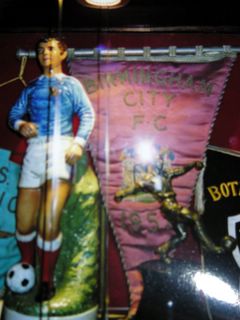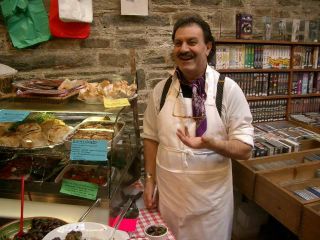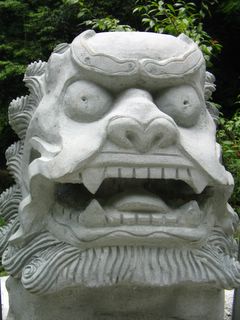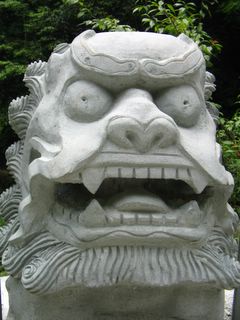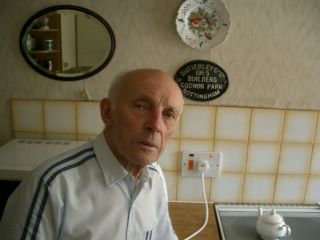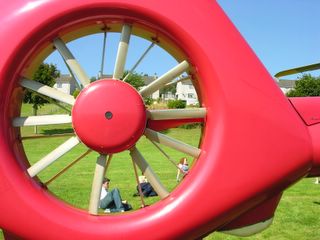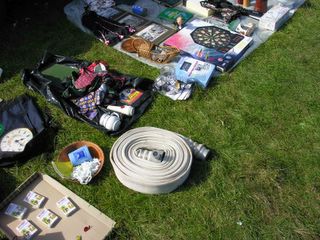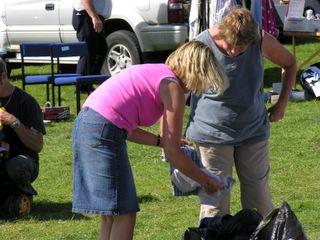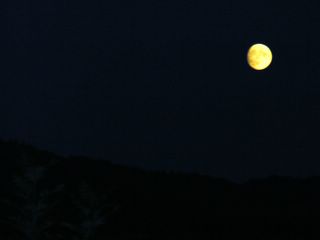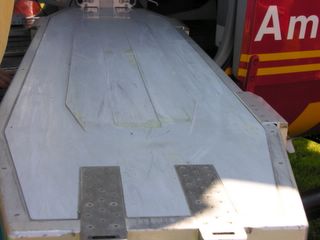Listen, read and learn -
by Phil Mershon(September 2001)Around 1980, my friend Julia had invited me over to listen to a compilation album by a singer named Phil Ochs. I was a college senior, trying desperately not to graduate, and she was a grad student, an amateur musician herself, with a fondness for folkies. I didn't expect much. First of all, I had never heard of the guy and secondly, it was probably just more recycled Gordon Lightfoot crooning and moaning about how cold it is in Canada in the winter time. But sexual imperatives being what they were, I sat on Julia's couch with a big expectant grin and tried to think up generic praise for the folksinger I was about to hear.
Ninety minutes later, I was on my feet for the third time, demanding that she play certain songs again. Before long I was off on a rant about how great it was to live in a country where you could go to the store and actually BUY this stuff. Julia and I debated about whether this music was actually folk. She maintained it was. I argued that it transcended categorization and was so wonderful that it should be located in a special Ochs section in the record store. In fact, there should be several aisles of Ochs product for people to buy. That excited utterance reminded me to ask, "Why haven't I heard of this guy before?"
Then she gave me the bad news, the news I'd heard too many times before and since. Someone whose work had--in the span of a few hours--changed my life forever was dead. She told me he had died in the mid-1970's. It had been a suicide. I could borrow the album, if I wanted.
Since that evening, the songs of Phil Ochs have never been far from my reach. And I found out over the years that I was not alone. Ochs has been the subject of two biographies, Sean Penn talks about making a film of the singer's life, and there have been more posthumous releases of his material than albums issued during his lifetime. At last count, there were twenty-one different titles available. It still bugs me that these are invariably filed in the "folk" section.
By the time Phil Ochs was recording Pleasures of the Harbor with producer Larry Marks in 1967, the singer had transformed from a gentle writer of fierce topical songs into a poet whose mind reinvented what his senses passionately explored. It was his first time working with Marks. The producer was determined to desert the barren and stark non-production Paul Rothchild had provided Ochs' first three albums, which had been recorded for Elektra. The new label, A&M, as well as the singer himself, sought to make the music relevant to the lyrics. With only a few exceptions, this resulted in an unfortunate swash of strings and waves of swirling orchestration that buried the singer in a typhoon of cacaphony. Some of his best songs were rendered unlistenable. And yet the album did have its strong moments. Phil had heard the story of Kitty Genovese, the New York woman who had screamed and pleaded for life while her neighbors watched in the shadows as she was brutally raped and murdered. Some of the more than two dozen people who witnessed her destruction even admitted to turning up their televisions to drown out the disturbing sounds. Ochs responded with "Outside of a Small Circle of Friends." Lyrically, the song's verses set up opportunities to exercise social responsibilities and provided one-line rationalizations for ignoring them. Musically, happy ragtime piano mocked those excuses while giving the song commercial hooks. Lacking heavy guitar riffs, it was ignored by the rock audience just as folkies found it too musical for their standards. "Outside of a Small Circle of Friends," released as a single, still managed to chart in Los Angeles, Sacramento and especially New York, where Phil's fan base had always been its strongest.
His second home, though, had to be Los Angeles. His brother Michael had already moved there to work on photography and music promotion, and Phil hired him to be his manager. Just east of Beverly Hills on Santa Monica Boulevard was a club called The Troubadour. It was owned and operated by a tall, skinny longhair named Doug Weston. Phil played The Troubadour regularly and became friends with the lanky owner. Weston wanted to produce a Phil Ochs concert in Los Angeles. The singer was ecstatic. Back in New York he'd played everywhere from Gerde's in the Village right up through Carnegie Hall. But doing a concert in L.A.? That was a new level. Having already toured in support of the album, Phil was sure he could fill the Santa Monica Civic Auditorium. Michael and Weston weren't so sure. Wouldn't it be better to play a smaller venue? they asked. Better to turn away a few people, they reasoned, than stare at rows of empty seats.
Phil got his way. His manager and producer had been right. The auditorium was less than twenty-five percent capacity.
In those days, before the Chicago riots, defeats could still leave him optimistic about both his career and about America. To that end, he behaved and reacted as if the success of his career and the health of his country were inexorably connected, perfectly correlated.
The former Ohio State University journalism student dropped out and moved to New York City in 1960 with designs on becoming a guitar-playing singing sensation. If Bob Gibson, Faron Young, Johnny Cash and Buddy Holly could become stars, there was no reason why the young Ohioan couldn't do the same. Mike Porco, who ran Gerde's Folk City, gave him his first paying job opening for John Hammond. To make the best use of the opportunity, Phil wrote and performed a song specific for the occasion. "The Power and the Glory" could have been written by Woody Guthrie, except that the set up of the final verse was more strategic, the delivery more impassioned and the pace more compelling than was accepted in Guthrie's day. After describing all the Whitman-like details of his beautiful country, a shadow of stern caution warned, "Yet she's only as rich as the poorest of the poor/Only as free as a padlocked prison door/Only as strong as our love for this land/Only as tall as we stand!"
Having developed by now a bit of a reputation, Phil managed to get other work in the city, primarily at The Third Side and at Sam Hood's The Gaslight. But where he fell under the gaze of the larger audience for folk music was in the pages of a mimeographed magazine called Broadside. In addition to articles, editorials and profiles, the magazine, published by Sis Cunningham and Gordon Friesen, printed the words and music of folk and topical songs written by Bob Dylan, Pete Seeger, and--suddenly--Phil Ochs. This recognition landed him an invitation to perform at Newport '63. Newport was far and away the premier showcase for folk singers. Phil would be in the company of Dylan and Seeger, as well as Tom Paxton, Joan Baez, The Freedom Singers and lesser luminaries. Phil's performance--throughout which he was battling terror and nausea--included the aforementioned "The Power and the Glory," as well as "The Ballad of Medgar Evers" and "Talking Birmingham Jam." An album of the festival was released the following year and featured two of Phil's songs. Mainstream newspapers announced a new sound in folk music.
The two major record labels that handled folk acts at the time were Vanguard and Elektra. Vanguard had a good roster that included Baez, Eric Andersen, The Weavers and Pat Sky. But Jac Holzman's Elektra offered Phil a zero dollar signing bonus. And if that wasn't flattering enough, he would be label mates with Judy Collins, Tim Hardin, and Tom Rush.
The first album, All the News That's Fit to Sing, was evocative of its title, a virtual What's What of headline stories and young smiling radical analysis. Topics included U.S. involvement in Vietnam after the death of President Diem, a social worker named Lou Marsh, the separation of a Hazard, Kentucky coal miner from his wife, a reporter named William Worthy who ran into trouble with the State Department for visiting Cuba, the Cuban Missile Crisis, and the assassination of civil rights leader Medgar Evers. There was even a lovely musical adaptation of Edgar Allan Poe's "The Bells." Future Blues Project member Danny Kalb filled out the sound on second guitar. In between promotional appearances and concerts in support of the album, Phil began what would become a life-long involvement in social activism.
It began with a number of benefit concerts for striking miners in Hazard. From there he was on to the Mississippi Caravan of Music, a consortium that staged concerts to encourage blacks to register to vote, which just happened to coincide with the discovery of the bodies of three civil rights workers slain by the Ku Klux Klan. Soon after his second album, I Ain't Marching Anymore, was released, he hooked up with Jerry Rubin and participated in the Berkeley teach-ins by singing between speeches. This was Ochs' first association with the anti-war movement that was by that time eclipsing civil rights as a national issue.
His greatest force for social change, however, remained his music. With a few exceptions, the liner notes to the second album were more insightful and entertaining than the songs themselves. Not so with the follow-up, Phil Ochs in Concert, recorded at Carnegie Hall. It was and remains among the greatest acoustic live albums of all time (despite the fact that much of the music was re-recorded elsewhere to make up for the taping defects). In addition to songs about book burnings and invasions of Latin American countries, there was the self-described "cinematic" "Ringing of Revolution." Ochs even named the actors. "John Wayne plays Lyndon Johnson. And Lyndon Johnson plays God. I play Bobby Dylan. A young Bobby Dylan." There was even one hysterical satire called "Love ME, I'm a Liberal," wherein Ochs exploded every cliché the near Left ever used. "In every political community there are varying shades of political opinion. One of the shadiest of these is the liberals. An outspoken group on many subjects. Ten degrees to the left of center in good times. Ten degrees to the right of center if it effects them personally. Here then is a lesson in safe logic." The album even contained a first: a Phil Ochs love song--"Changes." Amid a context of philosophy, politics and movies, that song lifted the performance to the level of Art.
It was a level he would either approximate, maintain or excel for the next few years. Despite the nearly grotesque overproduction of Pleasures of the Harbor, beneath all the noise was a song called "Crucifixion," which the sailor from the sea described as his greatest achievement. Indeed, it was high art, easily on a par with the best of Dylan's work. It was also ambitious, abstractly symbolizing political assassinations from Jesus Christ to John Kennedy. Alliterative, imagistic, accurate and terrified in tone, it is heard to better effect on the retrospective Chords of Fame in a crisp acoustic version.
And the night comes again to the circle-studded skyThe stars settle slowly, in loneliness they lieTill the universe explodes as a falling star is raisedThe planets are paralyzed, the mountains are amazedBut they all glow brighter from the brilliance of the blazeWith the speed of insanity--then he dies! The combined total sales of the first three albums had been less than 50,000 units. Phil Ochs and his new label--A&M--were optimistic that a change was needed. Pleasures' orchestration was chosen. A&M publicist Derek Taylor sent a copy of the album to President Johnson. Time, Billboard and Variety all conceded that the recording had its positive moments. Broadside, naturally, gutted the recording as a sellout, which was silly. The only thing the singer was selling out was concert tickets. The publicity worked. Phil's first A&M album outsold all three of his Elektra recordings combined.
While on a promotional tour for the album, Ochs became even more active in his opposition to the Vietnam War. One such manifestation was his organization of a "War is Over" celebration in New York's Washington Square Park. The idea behind the rally was that if enough people could come to believe the war was over, it actually would be so. It was also an opportunity to mobilize people through tactics of street theatre, tactics that were also being used to some effect by his friends in the newly formed Yippie community. By now Jerry Rubin and occasional collaborator Abbie Hoffman had learned how to use the media against itself. Aware that photographers had a tendency to focus on anyone with long hair and bare feet, the Yippies used humor and charm on reporters to ensure their media contacts wouldn't find the parades and marches altogether unacceptable. And so the "War is Over" celebration attracted thousands and allowed the Yippies to promote their upcoming gathering in Chicago. Phil did the same at all his public performances, while at the same time campaigning and playing benefits for the candidacy of Eugene McCarthy.
In between charity benefits and political obligations, Phil found a free week in which to make the album Tape From California. Again Larry Marks produced. But this time the lush orchestration was harnessed, when it was used at all. The title track actually had electric instruments and sounded suspiciously like rock and roll, albeit old time rock and roll. Unquestionably the best thing on the album, though, was "When in Rome," a song inspired by film director Elia Kazan's Viva Zapata. Calling the song brilliant, critic Bart Testa wrote "The song does nothing less than symbolically rewrite the entire history of the United States as a chaotic and apocalyptic epic, with Ochs playing all the lead parts in the first person."
Back through the ashes and back through the embersBack through the roads and ruins I rememberedMy hands at my side I sadly surrenderedDo as you please.The setting for the disaster that Chicago would become seemed nearly preordained. On March 12, 1968, Eugene McCarthy announced his candidacy for President. His platform was "Get Out Now." Four days later, Robert Kennedy announced his own candidacy on an anti-war ticket. Together the two men captured sixty-nine percent of the popular vote in the Democratic primaries. Lyndon Johnson's heir apparent, Hubert Humphrey, achieved a mere two percent. Before the primaries were over, Kennedy was assassinated. Abbie Hoffman suggested the Celebration of Life form a counter-convention where their attendees would all wear VOTE FOR ME buttons and each person would nominate himself. The aims of the Celebration were a blending of the philosophies of the Old and New Left, a gathering of radical organizations, a model of an alternative society, the politics of ecstacy. As Phil Ochs put it, the Yippies "wanted to be able to set out fantasies in the street to communicate their feelings to the public." A number of memorable slogans were coined, mainly as a way of publicizing the upcoming event. Sure that the more outrageous the phrase, the more likely the media would be to repeat it--and hence bestow the gift of free publicity--the Yippies declared they would "Burn Chicago to the ground! Acid for all! Abandon the creeping meatball!"
A few days before the Democratic Convention began, Phil Ochs, Stew Albert and Jerry Rubin found an Illinois farmer willing to sell a large sow for twenty dollars. Since Phil was the only one with any money, the honor of the purchase went to him. The Yippies had found their own candidate. On August 23, 1968, they held a press conference outside Chicago's Civic Center and announced their "Pigasus for President" campaign. The press was duly amused and the police hauled the group in, charging them with disturbing the peace and bringing livestock into the city.
What Phil witnessed over the next few days would forever alter the attitude he brought to the creations of his songs. It would in fact alter the very thought processes that went into writing altogether. His hope and optimism were shot full of holes. His faith in his childhood visions of America were destroyed, leaving him with the gut pains of introspection.
The night of August 24 brought 7,500 demonstrators to town, all of whom needed some place to stay. Many had plans to sleep in Lincoln Park. The police had other ideas. They attacked the Park with tear gas and beat the revelers as they left. The following night, the cops removed their badges to avoid easy detection, following Mayor Richard Daley's admonition: "The policeman isn't there to create disorder. He is there to preserve disorder." The message was understood. The police force attacked the press, local residents, paramedics and protestors with equal fervor. Plenty of network TV cameras filmed the massacre, but the rest of the nation wouldn't see it until days later because of sabotaged transmissions.
Humphrey accepted his party's nomination on August 28, as the day ended and the scent of tear gas wafted up Michigan Avenue to the nominee's suite at the Conrad Hilton. The worst violence was about to begin. And the New York folk singer would be right in the thick of things. The protestors had gathered in Grant Park to hear a series of speeches before marching to the Convention Center. The Chicago Police attempted to contain the group by surrounding the Park. One after another speaker addressed the crowd. In between speeches of men like activist Dave Dellinger, poet Allen Ginsberg, and comedian Dick Gregory, Phil would stand in the back of a pick-up truck and sing for the crowd. Shortly after he sang a rousing version of "I Ain't Marching Anymore," he saw a young boy climb the Park's flag pole and pull down Old Glory. The was all the provocation the police required. They grabbed the kid, beat him with their nightsticks, and tossed him into the back of a squad car while the more agitated onlookers threw rocks at the arresting officers. Press cameras filmed all this for posterity and even broadcast one cop commanding "Make sure you show them throwing rocks!" While Dave Dellinger attempted to lead a nonviolent march to the Convention Center (and was blocked from doing so), others took advantage of an opening in the quarantine and thousands of young people marched toward the Hilton. Enraged at being distracted, the police charged up Michigan Avenue, firing tear gas canisters and clubbing everything in sight. When clubs failed to subdue, they stomped. And when that proved ineffective, they kicked, shoved, punched and beat. The crowd shouted "The whole world is watching!" As Phil Ochs and the others would soon come to realize, most of the whole world didn't care and among those who did, many felt the cops hadn't gone far enough.
Back in Los Angeles, Phil began to question his own approach to politics in America. While the Yippies and other radicals had been creating and recreating their own counterculture, they had alienated the American working class along with Middle America. People who were already involved, Ochs reasoned, didn't need to be converted. Nixon--who would ride to victory above the shattered remains of a splintered Democratic Party--called these frightened Americans 'the Silent Majority.' Ochs knew that if this majority rejected the members of the New Left, they would in turn embrace the solutions of men like Nixon and George Wallace. Frightened by those prospects, the songwriter began to detach himself by degrees from the journalistic approach to his craft. The resulting music spoke with broader, more universal tones. As he's done in "Crucifixion," two or three lines could speak entire chapters while a whole song could fill libraries. One last time, Larry Marks would produce. This time they both got it exactly right.
Rehearsals for Retirement is among the most beautiful and powerful recordings in any musical genre. Backed by a real band, featuring Lincoln Mayorga (whose piano had been the stand out feature of the Pleasures album), Bob Rafkin on bass and guitar, and (probably) Kevin Kelly on drums, Ochs delivered the performance of a lifetime. The cover itself was a photograph of a tombstone Phil had had made for the occasion. The headstone bore an oval picture of Phil standing in front of the flag with a Revolutionary War rifle slung over his shoulder. Beneath the image were the words: Phil Ochs (American). Born: El Paso, Texas 1940; Died: Chicago, Illinois 1968.
The album led off with "Pretty Smart on My Part" which in four crisp verses not only gave an hysterically funny analysis of the reactive behavior of the machismo mentality, it tied the vignettes together with a pair of lines--twenty-four years before Oliver Stone would do the same--asserting that John Kennedy had been assassinated to allow the U.S. military the pleasure of frying the people of Vietnam. Before the impact of that assertion could sink in, Mayorga's piano introduces "The Doll House" with a sound of someone lost and wandering in a surreal environment of someone else's making. The singer himself is lost amid this ambience, a world of soft confusion and amazing pressure. It all unspins with the plateau: "The ballet master/Was beckoning ‘faster'/The ballerina was posed/In the fragile beauty she froze/Let go! Let go! Let go! Let go! Let go!" After that uncommercial interruption, Ochs is back in a narrative that begins and ends in the third person and yet clearly is also the first person narrator in between, a police officer, defensive about his responsibility to "keep the country safe from long hair," hateful of the students and minorities he brutalizes, yet unable to understand what it is that his enemies don't understand about him. Ultimately he can only utter a variation on Descartes: "I kill, therefore I am." The song "William Butler Yeats Visits Lincoln Park and Escapes Unscathed" is possibly more worthy of praise for its inventive title than its descriptions of Convention Week. The same cannot be said for the album's centerpiece.
Smack dab in the middle of Rehearsals for Retirement is "My Life." In the same way The Beatles permanently altered the way they would be understood by their audience with Rubber Soul, Phil Ochs made his breakthrough with this song. The Beatles' album took the public perception of their product from dance music and love songs into a perception of themselves as a highly complex group involved in the process of creating some mighty fine artwork. Ochs' album, and this song in particular, revealed the artist as a culmination of all the characters he'd created, each the victim of its own vulnerabilities but not necessarily hugable and endearing.
The intensity does not lessen with "The Scorpion Departs but Never Returns," explicitly a song about the missing nuclear submarine but implicitly a strong metaphor for the performer's view of his own position in society.
Sounding bell is diving down the water greenNot a trace, not a toothbrush, not a cigarette was seenBubble ball is rising from a whisper or a screamBut I'm not screaming, no I'm not screamingTell me I'm not screaming. Perhaps sensing he'd revealed enough for the moment, Ochs took his audience on a brief road trip from Eden to Los Angeles--"city of tomorrow." Then soon enough, we're back, engulfed in the personal drama of "Doesn't Lenny Live Here Anymore," a song that was not only obviously inspired by Bob Dylan's "Like a Rolling Stone," but could easily be the long awaited response from the unseen character Dylan had been lecturing. Peppered with spicy lines like "You love your love so much that you'd strangle her gladly" and "You search the books in vain for a better word for lonely," the song climaxes with the narrator coming upon an ex-lover's emotional suicide in process.
The galloping horseback rhythms of "Another Age" unite Tom Paine, Jesse James and Robin Hood in search of a stolen election. Then suddenly the horse can run no more and the title track walks the final lap of the course. The end is near. Though still tinged with vibrato, his voice struggles to contain the moan beneath it. With a fade of piano and bass, he is gone.
He lies on his back on the couch in the Canyon house. Awake, he closes his eyes and imagines he is dreaming. He sees his paternal grandfather lip-locked beside the radio, listening to FDR speak reassuringly, while his grandmother fries eggs in the kitchen. His father comes in, wide-eyed and despondent from days without sleep. He sees himself hiding beneath a desk in Miss Jocelyn's classroom during an air raid drill, teasing his younger brother, being softly scolded by his older sister.
A chill comes in through the living room window, so he pulls the remembered images over himself like a patchwork quilt. A match flame of exploration in the dark; a faint smell that never leaves the walls; the taste of buttered popcorn at the movies; mastering scales on the clarinet; his father staring at the newspaper without reading it; shooting himself in the leg while showing off for a friend; a green sign welcoming the world to Columbus, Ohio; James Dean's red jacket; Fidel Castro marching into Havana; a pencil snapping between tight fingers; the strum of a guitar he'd won in a bet; a belt tied in a loop with a buckle supporting his own weight.
The idea of the gold suit came to him after seeing Elvis Presley perform in Las Vegas. The only hope for America, Phil decided, was a revolution, and the only hope for a revolution in America was for Elvis to become Che Guevara. Since the young man from Tupelo was unlikely to make such a conversion, Phil Ochs would have to become Elvis as Che himself. The first step was having Nudie the tailor make him a gold suit. That was the first mistake.
The second mistake was his next album. The songs themselves were fine, but if Larry Marks had buried Ochs' tunes under a sea of swash, new producer Van Dyke Parks placed some very good tunes behind a Spectorian Wall of Sound, with timpani drums and backing choruses that would have been more at home on a Ronettes album than on Phil Ochs' Greatest Hits. That title was his third mistake. Intended sarcastically, the title (and the reverse legend declaring "50 Phil Ochs' fans can't be wrong!") was easily misunderstood as being what it purported to be.
His last mistake was in the way he chose to promote the album. He was scheduled to play Carnegie Hall again. He showed up, but this time he was wearing the gold suit and had his band with him. He might reasonably have expected to be about as welcome as Dylan had been when the latter had gone electric at Newport. As if to guarantee a hostile reaction, his set was weighted with other people's songs. After beginning with a up version of Conway Twitty's "Mona Lisa" and his own obligatory "I Ain't Marching Anymore," he introduced his rendition of Merle Haggard's "Okie From Meskogee." Everyone assumed that gesture was intended as irony, but how could anyone tell for sure? The real trouble, though, came when he performed medleys of hits first by Buddy Holly and later by Elvis. The first set received such a hostile response that the singer gently lectured the crowd. "Let's not be narrow-minded Americans- You can be a bigot against blacks, you can be a bigot against music." After another pair of his own songs--neither from the new album that needed promoting--he did the Elvis medley. Although his voice was heavy with reverb, he still sounded magnificent and just as the crowd was won over, Carnegie Hall cut the power. The audience shouted "We want power! We want power!" Electricity was restored and the concert was completed.
Phil begged A&M's Jerry Moss to release the tapes of the concert as an album. Moss politely declined. Eventually A&M did issue the album--in Canada. It would be more than twenty years before it was available in the United States.
Over the next few years, Phil became more isolated from his friends and spent most of his time drinking, watching TV and traveling to other countries. In South Africa, he was robbed by three men. In the process, his vocal cords were ruptured and he lost his upper register. Convinced he would never sing professionally again, he fell deeper into bouts of manic depression and paranoia.
Does anybody know my name or recognize my face?I must have come from somewhere but I can't recall the placeThey left me at the matinee and left without a trace.Ticket home--I want a ticket home! His nephew David found him hanging from his own belt in his sister's bathroom. He was thirty-five years old. I can make no case for martyrdom here. There is nothing noble about suicide, regardless of how that suicide may have been the result of social forces or diminished expectations. Had he lived, I doubt Phil would have made any new songs, and if he had, they probably would not have compared favorably with his best work. But it remains a fact that whenever I read about some ludicrous injustice or monumental hypocrisy, I wonder what Ochs would have said about it, how he would have summed up the situation with an acerbic line or two. And I wonder who
To my mind the greatest songwriter of the 20th century and In The United Kingdom only a few remember - sad!
Gord.
